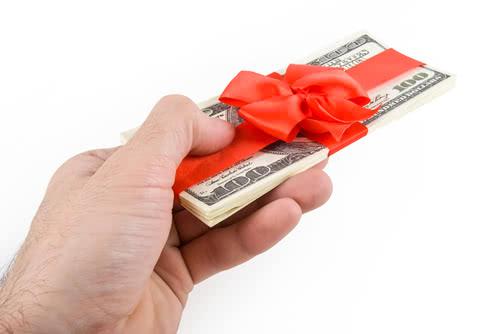Suppose you're way upside down on your mortgage. Can you buy another house at today's discounted prices, then simply stop payments on the first one and let it go into foreclosure?
Surprisingly, the answer is yes, you can. Of course, you can also go to jail - which shouldn't be a surprise at all.
The practice, commonly known as "buy and bail" is considered a type of mortgage fraud. Mortgage fraud occurs when a borrower withholds or falsifies information that would likely cause the lender to reject their loan application if the truth were known.
On the surface, it seems like a clever strategy. A homeowner experiences a sharp drop in their home value, leaving them "underwater" on their mortgage, owing more than the property is worth. They decide it makes more sense financially to stop paying the mortgage and give up the house rather than continue paying what is now far more than the home is worth.
Buy and bail
However, allowing their current home to go into foreclosure means they won't be able to buy another one anytime soon, probably at least five years. So instead, they buy the new, less-expensive home first, then stop payments on the house with the big mortgage. Their credit still gets ruined, but not before they're in a new home, perhaps comparable to the old, with a much smaller mortgage
The practice of "buy and bail" emerged as a significant problem for the mortgage industry as housing prices fell drastically in recent years. What often makes it fraudulent is that the homeowner claims to be purchasing the new home as an investment property, or states an intention to rent out the original home, without actually intending to do so. Because the anticipated rental income is stated as part of the new mortgage application, that makes it fraud.
Technically, one might be able to avoid committing fraud by simply admitting to the new lender that you plan to abandon your current residence. But it's highly unlikely that any lender would approve a loan knowing that you plan to do so. And concealing that fact in itself could be construed as fraud.
Lenders tighten criteria for second home
In response to an increasing incidence of "buy and bail" situations, lenders have tightened up their criteria for making loans to homeowners wishing to purchase a second property. Fannie Mae, which sets the tone for much of the mortgage lending in the U.S., now requires that a borrower seeking to buy a new home before selling their current one must be able to qualify for fully qualify for both payments. Rental income can only be counted if the homeowner has at least a 30 percent equity in the current home, at present market value.
Things get a bit more complicated in cases where there is a couple where only one spouse is listed on the deed and mortgage. In that situation, the other spouse might purchase a new home independently, while the first allows the old home to fall into foreclosure, but this approach is dicey at best. Spouses generally are recognized to have shared property even if both names are not on the deed, so fraud is still a strong possibility here. Tax troubles with the IRS are a distinct possibility as well.
Lenders also are alert to various signs that a borrower may be attempting a buy and bail. These include: being underwater on their present mortgage, seeking to buy a home in the same general area as their current one, planning to rent one home or the other despite having no history as a landlord, and not having a legitimate renter lined up.
Legitimate purchasers having a harder time
Of course, the prevalence of "buy and bail" makes it harder for those who are legitimately moving to purchase a new home before selling their current one. You may need to demonstrate that you are moving to take a new job or be making a significant upgrade from your current home to qualify. If you have less than 30 percent equity in your current home, you may also need to have a reserve equal to six months' of mortgage payments.
If you find yourself in a situation where you owe far more on your mortgage than your home is now worth and feel that it doesn't make sense to continue making payments, there are other options besides "buy and bail." You can give up the home and become a renter. You can seek a short sale, if the lender will approve, that will get you out of the mortgage and allow you to purchase a home again in as little as two years. Or you can seek a loan modification to lower your monthly payments that *might* include an agreement by the lender to write off some of the principal - this does happen in some cases.
Any are better than risking mortgage fraud. Remember, even a foreclosure drops off your credit in sevens years. A felony stays with you for life.





